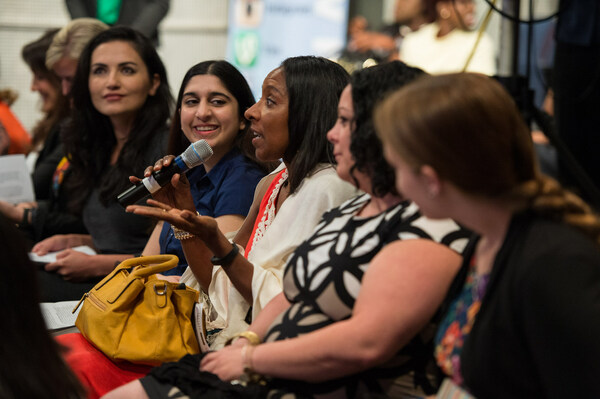NASA has announced that it will award more than $5 million in funding to seven Women’s Colleges and Universities (WCUs) to research and develop strategies that increase retention of women in STEM degree programmes and careers, as part of a Biden/Harris initiative.
The agency’s Minority University Research and Education Project (MUREP) created the Women’s Colleges and Universities opportunity to help women overcome obstacles and barriers to working in the fields of science, technology, engineering, and maths. This award seeks to address the significant national gender gap and disparate experiences of women in STEM in the United States, both in higher education and the workforce.
“This is a very exciting first; we’re making strides to close the pervasive gender gap in STEM, and Women’s Colleges and Universities are well-positioned to help drive that positive change,” said NASA Deputy Administrator Pam Melroy, a graduate from Wellesley College. “It’s more important than ever we have brilliant, enthusiastic people entering the workforce and ready to take on the ambitious plans and challenges ahead.”
IMPROVING DIVERSITY, EQUITY, INCLUSION & ACCESSIBILITY
Created in response to the White House Executive Order 14035 “Diversity, Equity, Inclusion, and Accessibility in the Federal Workforce,” this funding opportunity asked Women’s Colleges and Universities to take advantage of their expertise by developing programmes that encompass academics, research, student support, college prep, career prep, mentoring, and more. NASA explores the unknown for all, and values diversity, equity, inclusion, and accessibility for the future STEM and agency workforce.
The gender gap is reflected in education and workforce data. Women earn 59% of undergraduate degrees compared to 41% of men, but only 10% of women’s degrees are in a STEM field as stated by the US National Center of Education Statistics. This pattern follows women into the workplace, where they represent about 47% of the workforce, but only 27% of STEM jobs as stated by the US Census Bureau. Among women of colour in STEM, fewer than one in 20 are scientists and engineers. At NASA, 26% of the agency’s scientists and engineers are women.
These programmes were developed to factor in gender, race, sexual orientation, socio-economic status, and other identities that can play a role in students’ career trajectories. Each awardee also will provide a guidebook of data, instructions, and best practices to serve as a blueprint for other Minority-Serving Institutions and Women’s Colleges seeking to create similar programmes.
SELECTED INSTITUTIONS TO RECEIVE FUNDING
The selected institutions and their proposed projects to get funding include:
- Agnes Scott College, Decatur, Georgia
Alumnae Network & Career Resources Program – STEM Support Anchored at Agnes Scott College - Alverno College, Milwaukee
Alverno College “Launching the Future”: An Intersectional Approach to Boosting Recruitment and Retention of Women in STEM Undergraduate Education - Cedar Crest College, Allentown, Pennsylvania
TOWERS – Tackling Obstacles for Women’s Engagement & Retention in STEM at Cedar Crest College - College of Saint Mary, Omaha, Nebraska
Project BLOOM for Women in STEM – Bolstering Learning, Opportunities, Outreach, and Mindfulness - Salem Academy and College, Winston-Salem, North Carolina
Soar With Salem: A Comprehensive Program to Inspire Women and Girls to Become the Next Generation of STEM Professionals - Simmons University, Boston
DREAM-WSTEM (Dynamic Research Education Academy for Mentoring Women in STEM) - Smith College, Northampton, Massachusetts
Developing a Pathway to MaRS (Math Resilient Students) in STEM: A Cascading Mentorship Model
Back in 2021 NASA awarded around $18 million to minority serving institutions for research. Click here to read more.






































